Simple: The guy had bad karma.
And how did he get bad karma? By being a fool in a past life, maybe. Or, more likely, being a fool in this one.

As most of my readers will already know, by spring of 2013, many of Nickelsville’s Highland Park neighbors, including me, were putting pressure on Mayor McGinn and the city government to do something about this nuisance. It had been two years since they set up shop at the bottom of the hill, and in that time the Mayor and Council had made no serious effort to find them another place, evict them, or even get them to clean up their act. Things were getting worse there by the day, with new panhandlers moving in from all over the country and camp rejects sticking around in the neighborhood after being kicked out for rule violations or political differences with the camp management.
Eventually, the local neighborhood committee submitted a petition with several hundred signatures on it (Get them outta here!) and a local business owner sued the City for over a million bucks. In short, a lot of people really wanted Nickelsville gone
As in . . . yesterday.
So, what was Mayor McGinn’s response to this situation? His response was to send a letter to the City Council, proposing, as one of the options, to make Highland Park Nickelsville’s forever home! In sending this letter, McGinn not only completely disrespected the Highland Park neighborhood and what they had been through, he proposed to nullify, in the stroke of a pen, decades’ worth of hard-won land-use regulations.
Pretty foolish, right? Right.
But the Mayor wasn’t done being foolish. Not just yet.
A group of people from all over West Seattle, outraged by the Mayor’s general cluelessness, arranged to meet with him personally to discuss the issue of why Nickelsville was a problem. At this meeting, people who had beaucoup experience with the place (both good and bad) explained to the Mayor that Nickelsville was not only not getting homeless people the help they needed, it was not even providing them with a safe place to be. Beyond that, it was creating a huge nuisance in the neighborhood.
When the Mayor heard these things, he acted concerned. He acted like he believed that Nickelsville was a problem. Why, he even acted like he wanted to do something about the problem. But you know what he did then? He punted.
He said [paraphrasing]: “Gee, I really want to take action on this, but I can’t unless there’s a whole bunch of public outrage. So what you all need to do is go tell the Stranger about the situation, and have them write a big article about it, and get everyone stirred up. And then maybe I can do something.”
Or in other words . . . Bring me the Witch’s Broom!

So there you have it: A politician telling his constituents that he knows what the right thing to do is, but that he can’t actually do it until someone else makes him.
Hmm . . . now where have I heard that before? [Hint: Starts with an “O”.]
At least one of the folks at the meeting did contact the Stranger about Nickelsville, but the Stranger, having the attention span of a stoned Chihuahua, naturally didn’t do squat. As we know, it would be several months more before the City Council would finally evict Nickelsville, and then it was over the objection of the Mayor.
I know not what the Mayor’s real intentions toward Nickelsville were, but I tell you this: Any man who needs to be compelled to do what’s right is a fool and a coward into the bargain. I don’t know whether this Ed Murray fellow deserved to win the Mayor’s seat. But I know that Mike McGinn deserved to lose it.
Good riddance, fool!





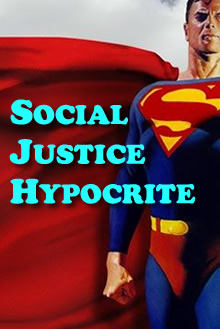


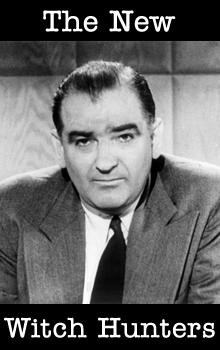


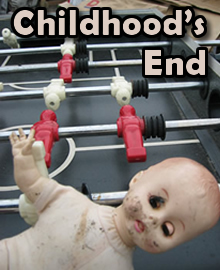


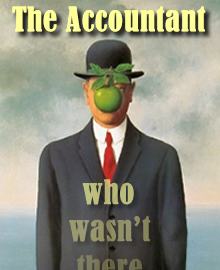

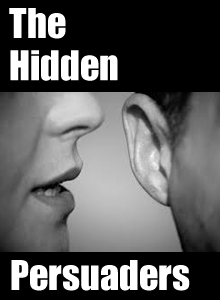




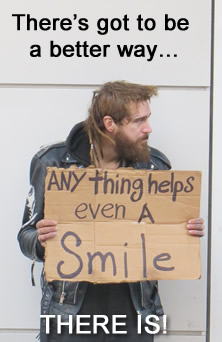
Really great summary DBP. I hope for better things from Ed Murray but he is a politician like McGinn so I’m not holding my breath. Just glad McGinn got kicked to tha curb. L8R beyatch!
Rats, you’ll notice that, even though I trashed McGinn repeatedly on these pages, at no point did I say: “Vote Murray.”
As a journalist, I feel that it is my duty to refrain from endorsing or opposing any candidate per se. And in fact, I did not even vote in those contests where I had made a public comment (as a journalist) on either of the candidates. That hurt, because I like voting. However, I was able to console myself that, even without voting, I still enjoy a greater “right” than your average citizen in the sense that I run a blog devoted to free speech and open government. Not everyone can do that.
Now here’s my take on voting, generally:
To me, whether John Doe votes for one candidate or another is less important than the question of how effectively Mr. Doe exercises his many other civil rights. If Doe votes for Murray (or Obama, or Romney, whomever) and Doe’s guy wins, but then Doe retires from politics and we never hear from again for the next four years . . . why the guy might as well be living under a dictatorship, for the only right he is exercising (voting) is probably the least significant of all rights we have under the Constitution. In fact, this once-a-year voting by citizens has far less influence, in real terms, than the acts corporations take to influence government every damn day of the year. (See “The Friends of Mike McGinn.”)
Contrari-wise, if John Doe’s candidate loses, but John Doe stays engaged with the political process, writing letters, making phone calls, turning out for demonstrations, etc., then John Doe is wielding vastly more political power than if his candidate had won . . . and then brushed him off, as politicians are wont to do.
Long story short . . . although I was glad to see little Mikey McGinn punished for his ineptitude, I didn’t really care that much whether it turned out to be him for another four, or Murray. What matters more is whether the people of Seattle – and indeed, of America – will get more involved governing themselves, or whether they will continue to let others govern in their name.
Just wanted to let you know I read this and I agree.
I’m amazed as well.
It’s the incumbent advantage, dude. Unless an incumbent is really screwing up, or otherwise annoying the masses, it takes a lot of oomph to get ’em out of there. Frankly, I’m surprised that Kshama Sawant (a socialist) did as well as she did against Richard Conlin. (Theoretically, she could still win.)
Conlin didn’t even have any major screw-ups, but he’d been in there a long time and people weren’t impressed with his record. By contrast, Sawant was promising to do great things, starting with raising the minimum wage in Seattle. Plus, she’s cute.
(OK . . . Conlin’s cute, too, but in a more distinguished, older gentleman way.)
The challenge for any outsider like Sawant is not just to be different, but to show how different can work better than same-ole same-ole. The Stranger spoke admiringly of her radical ideas, but I didn’t hear them talking about how she could actually implement them. Savant did not represent a cohesive political movement that I know of, and even if she got in, she’d still be just a single vote on the Council.
Here’s a recent puff-piece on Sawant by the Stranger’s Charles Mudede. It illustrates my point about their starry-eyed dreamer approach to politics. [Clicky-clicky]
Here’s the text of an e-mail I sent to Mudede about the story:
Charles, you spent more time discussing what’s bad about capitalism (Thanks, we didn’t know that) than what’s good about Sawant. The central question in voters’ minds about any outsider/radical candidate is not whether people are tired of the old system (they are) but whether the newcomer will be able to make any significant change to that system. So it would’ve been more useful to discuss Ms. Sawant from the perspective of:
1) What’s her plan?
2) Can she do it?
–No answer from Mr. Mudede yet. Not holding my breath either.
I think people like Charles who have email but don’t reply should not have email or at least don’t advertise the address . Somewhat related, what are your thougts on the $15/hr push in Seatac?
Mudede’s got the possible excuse – for not answering my e-mail – that he’s a busy guy. After all, I think he writes about half of the Stranger columns. (Saves money, boosts revenue.)
He’s got the other excuse that since I didn’t say something flattering about him or the Stranger, he has no obligation to answer me. That’s typical for “important” media people. Unless you kiss their butts, they just don’t answer you. (Unless they have to for some reason.) I obviously don’t kiss their butt. In fact, I generally don’t have good things to say about the Stranger, because they’re a lot like the Blow Blog, in that (1) they’re very full of themselves and (2) they’ve gotten very lazy when it comes to reporting on stuff that matters.
Domenic Holden answered one of my e-mails (which was nice) but he didn’t address my criticism of him. still, I felt bad later, for trashing him. I get the feeling that he’s really a nice guy. Just whiny.
By the way, Charles Mudede’s e-mail is: charles@thestranger.com
Re: Minimum wage for SeaTac
Minimum wage laws do real good, but it’s generally unwise to consider wages in isolation of other economic factors. A minimum-wage law of $15 for SeaTac seems kind of odd when you think that SeaTac is one of the cheapest places to live around here. If it passes, SeaTac will have a much higher minimum wage than say, Belltown, which is considerably more expensive to live in.
And then there’s the effect it will have on local businesses. SeaTac has a lot of motels, and they probably won’t just pull up stakes and leave, but I can promise you that the ones who stay will be looking for ways to cheat. That could mean hiring even more illegals or paying their people under the table. Or cutting hours and expecting more work from people. Many coffee stands and other small businesses – the businesses that can easily leave – will do so.
My point is not that you shouldn’t have a minimum wage but just that it’s damned hard to impose it on one little town, when that town will still be an island in a surrounding sea of low-wage jobs. It’s better to raise the minimum wage state-wide or county-wide, so there’ll be more of a level playing field.
But if they can pull it off, I’m all for it.
Side note: What I’m talking about above also played a part in the debate over I-590 (the state income tax). Opponents of that claimed that if we created the state income tax, businesses would flee to the greener pastures of states like Texas. Whether that would have been true or not, many voters believed the argument and voted against the initiative on that basis. It lost handily.